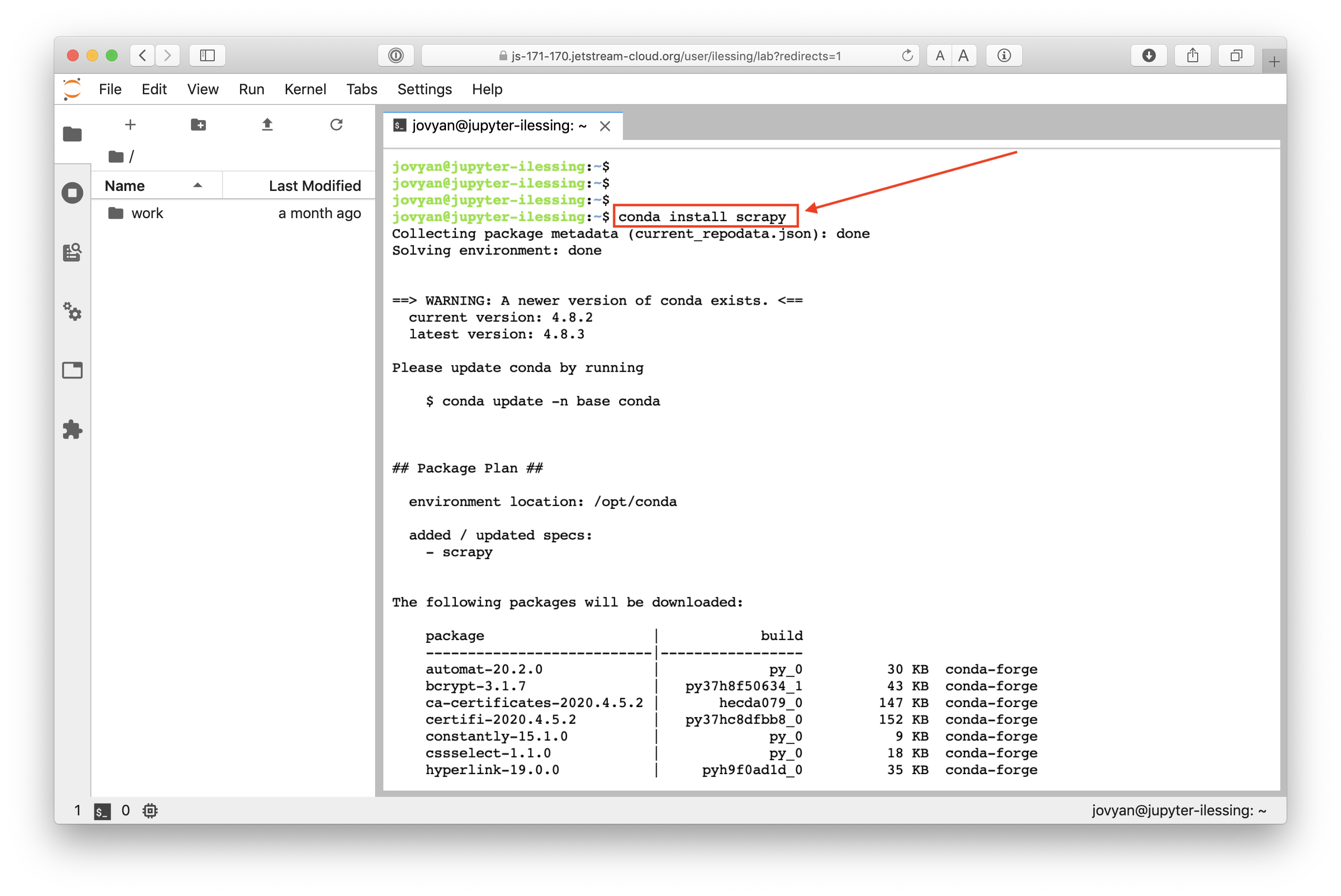In order to follow this lesson, you will need to make sure the following software is installed on your computer.
Part one: Manually scrape data using browser extensions
For the first half of the lesson, we will use a Chrome browser extension to get started with web scraping.
- Please ensure you have a working copy of the Chrome browser.
- Using Chrome, download and enable the Scraper extension.
Part two: Write small Python programs to automatically scrape data
Python
The second part of the lesson requires the Python programming language and access to a command-line interface (shell) on your computer. Please refer back to the workshop’s setup instructions for Python for Python if you need guidance.
Preparing for the workshop
In this part of the lesson, we will apply our new shell skills. If you want to learn more about the basics of python, work your way through a Python carpentry lesson:
Scrapy
for June 17, 2020 Jupyter Lab
For our June 17th, 2020 Workshop we’ll be using a Jupyter Hub/Jupyter Lab web based python development environment. So you will NOT need to install Python locally. You’ll use python through your web browser for this workshop.
Within Jupyter Lab you will need to install scrapy by entering
conda install -y scrapyin the terminal. Instructor will go over this process during the workshop.
The instructions below are for anyone doing this lesson outside of our live workshop.
Once you have a working installation of Python, the next step is to install Scrapy.
If you have installed Python using the Anaconda framework as suggested on the workshop homepage setup instructions, you can easilly install Scrapy by doing the following:
- Open a new shell (e.g. Terminal on Mac, or the Anaconda command-line tool on Windows)
- Type the following:
conda install -c conda-forge scrapy
Alternatively, if you have another distribution of Python, you can try using pip:
pip install Scrapy
If you run into issues while installing Scrapy, refer to the official Scrapy install guide or get in touch with your lesson instructor.
